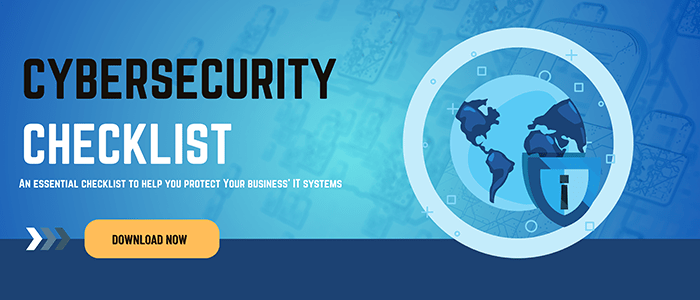How Companies Can Keep a Positive Outlook
 Steve Ripper and Dave Hodgdon from Portsmouth Computer Group (PCGIT) discuss how companies can keep a positive outlook during a pandemic like COVID-19.
Steve Ripper and Dave Hodgdon from Portsmouth Computer Group (PCGIT) discuss how companies can keep a positive outlook during a pandemic like COVID-19.
Mike: Tech Tuesday, the Morning Information Center all powered by Portsmouth Computer Group and we’re joined this morning remotely by Steve Ripper and Dave Hodgdon. Gentlemen, good morning. How are you? How do we stay positive in this time of great turmoil? How do companies keep a positive outlook during these times Steve? What do some of these companies really need to do?
Staying Positive
Steve Ripper: Yeah. So, it’s a tough topic, right? Because how do you talk about being positive when everything’s just going so terribly? But it is important to keep, what we’re really talking about here is morale. We’re talking about attitude, we’re talking about vision. So, some of the big things that companies really have to do, I know that working for PCG, Dave has been great about this, we have constant communication. We need to constantly keep it open. People start to get worried, positivity goes away when people are wondering what’s going on, what’s their future, what’s going to happen? So, if your employees are thinking too much about what’s going on instead of hearing what’s going on, it gets bad. Daily huddles, E-meetings, one on one meetings, things like that, right Dave?
Dave Hodgdon: Yeah. So, I’m constantly, Mike, keeping the team updated on what’s going on, not only health wise, what’s going on with the government, what’s going on with the state and how the state of PCG’s doing and how our client’s doing. So, you can see them last week when everyone was forced home, everyone looked somber, but I thought it was important for me from a leadership standpoint to give the message and let them all know that they’re okay, their jobs are safe and you can just feel a little relief. I think that constant communication is just key with your workers and having that face time with them as we spoke about over teams and just constantly keeping an update and have a positive attitude.
Reassuring Employees and Giving Them the Right Tools
Mike: Yeah. I mean, as you say, reassuring your workers, that’s so critical now because people, they are worried about this, right Steve? I mean, there’s a lot of things that people can do and companies can do and leaders and companies, managers can do to build up a little morale as well by also saying that your job is okay.
Steve: Yeah. I mean, if you can, if you’re a company owner and you can give that reassurance, I mean maybe some company owners out there, Mike, can’t do that, but if you can give that reassurance, don’t hesitate, right? Get on that because your employees, as an employee, I can tell you this, we’re sitting in our basements, our home offices, maybe we’re doing some remote work, maybe we got the kid bouncing on our knees and we’re worried. We’re wondering what’s going to happen next. Are we going to be okay? And it’s company owners, they need to go out and say, “Build a remote infrastructure.” If you don’t have that set up where your users, your employees can video in so they can see each other and talk to each other and conference, then start working on that.
It will last beyond this. This isn’t going to last forever. We’re going to figure this out, right? But any money you spend, any effort you put into the remote infrastructure and the ability to collaborate will continue to be useful to your company.
Mike: Yeah-
Dave: Hey Mike, we had several clients which are really stepping up with their staff at home. We are so busy setting them up with new systems, with webcams, with extra monitors. There are a lot of companies around here just doing a phenomenal job, keeping us busy. We’re setting it up here and shipping it remotely, then helping them over the phone, but you just can’t expect someone to work on their home machine. We talked about how vital that was last week that a home machine is a risk and as a company you need to make sure you’re in the right environment. So I mean, companies are banking that we’re coming back, which we will be, but I’m thinking this is a good two months we’re going to be doing this.
Mike: Yeah. I agree with you too. I think it’s going to be very difficult. We’ve been talking about it on the radio, how do we ease our way back into this? I mean, we’ve eased our way out of this from crowds of 200 to 100 to 50 and now gatherings of 10 and now stay at home orders, but how do we ease our way back into it? But I think what you said, what’s interesting to me Dave, and I think, can you imagine if we did not have the technology that we have today? Nobody would be able to work at home.
Dave: Well, I think we’re feeling a little bit of pain now. The Comcast, the First Lights, the Verizon’s, they’re having not too much of an issue with the business, but there are definitely some issues at the remote locations, but I’m really crediting these vendors of stepping it up to keep this circuit going. Yeah, there’s been a little bit of downtime and you think about the average home, you could have three kids doing homework, someone’s streaming some movies, someone doing their work from home. You’re definitely putting some extra strain on that bandwidth.
Mike: So, people have told me that-
Steve: Yeah. Mike, I’m-
Mike: I’m sorry. People have told me that if you’re streaming videos or movies on Netflix or Amazon, the bandwidth is not as great anymore because there’s so many people using the services. Would that be correct, Dave?
Dave: That is absolutely correct. You probably know, even if you’re doing some of your keying, your video calls now, I’ve noticed over the last week instead of the video just being crisp and clear, it’s a little grainy and a little bit foggy. So, I think it really depends where you live and the amount of traffic in that particular area, but absolutely Mike.
Mike: Steve, have you been going into the retail locations or you’ve been working mostly at home?
Steve: No. I’ve been working mostly at home Mike and I to your point a few minutes ago, the internet gets a lot of grief in the social media, but Mike, you’re absolutely right. Imagine what this would be like without it. It really has enabled a lot of people to continue to work. It’s allowed people who might have ignored the social distancing, it’s made staying home tolerable, right? Where you can have the kids on the internet and social media has allowed people to meet with friends as well as do it at work. So, I can’t imagine what this would have been like in the early ’90s. Maybe we just would’ve gone right into the depression, whereas the internet is actually allowing us to figure out what’s going on, maybe what the news is and allow us to continue to maybe have a social interaction while staying away from each other.
Mike: Yeah. Dave, I was going to say, without companies like Portsmouth Computer Group, I mean you guys are in the forefront of the technology and you guys know what’s coming down the pike in the last part of this year and coming up in 2021 and you’ve got to be so happy that you’ve got these tools that companies can use so they can continue to do their business.
Dave: I think we’re very fortunate and blessed to be in the industry we are, but you hit it right on the button Mike, that we are a key cog in the wheel. It still takes the people, the leadership of the other businesses to make it happen, but we are similar to what the medical workers are doing to help everything, what’s going on. We are a piece to help them do their work and I would say, I think two weeks ago our average call volume was about 60 calls, tickets a day. We’re up to about 150 a day. So, it’s picking up because we have to get everyone, each day more and more people are not at work. They’re working from home. So, we’re working very hard to get them working.
Mike: Yeah and if I was going to say, I was going to throw out the number there. 603-431-4221. That’s 603-431-4221 for the folks at Portsmouth Computer Group. Go ahead, Steve. Go ahead.
Preparing for the Future With Home Offices
Steve: Yeah. Sorry about that, Mike. Yeah, I think that Mike, you mentioned about the big trend going forward, I think people are really going to get their home offices dialed in, in a way that they didn’t really think about before. Maybe they had a little bit at home, but they didn’t want the work to invade their home space because they would just get in the car and drive to work, but now I think that the trend, even when this pandemic passes, you’re going to see more and more people will be talking both to their company and their companies will be talking to us about getting their home office dialed in, two monitors, remote access so that this is an experience that they’ve lived through where they’re going to start to say, “I have to be ready that. We can have this again, another natural disaster, a virus or whatever. I have to be ready going forward to be able to work the same way I work at work, the same way I can at home.”
Mike: Dave, I was thinking what happens if this becomes the new norm? Even if things get better, the more and more people have the ability now to work from home and they’ll take that option, I guess.
Dave: I’m thinking probably 25 to 40% of this will be the new norm, Mike, based upon I think it helps certain employees that might not be able to take that job to work from home. I have kids, do different hours. I have a couple of my techs that have come to me with the kids being home and they’ve asked me, ” Hey Dave, can I do the four to midnight shift?” And it’s a good time to be flexible and that really helps the employees, that stickiness and that bonding, Mike. So, I think Steve would agree. I think a lot of people now will work remotely where people felt you had to be in touch with them here at the office.
Mike: Yeah. It could be the new norm, huh Steve?
Steve: Yeah, it is. It takes some getting used to, Mike. You do feel disconnected. You do feel like all right, what’s going on at the office? Are there some people at the office? So, I think companies that are focused on being in the building will go back to being in the building. We have a building. I mean, if this passes I’m going to go back into work. I know that. I know that for a fact, but yeah. There’s this process of getting used to, it was really an adjustment to learn to just go, “All right. I need to talk to that coworker,” and then just ease them and then get them into camera. We get into the camera, we start talking, but after you get used to it, the flow starts to come and you start to understand that you’re still an organization, that you’re still working for goals even though you might not be under the same roof at the exact same time.
Mike: Yeah.
Keeping Up Morale
Dave: But Mike, one of the big points we need to wrap up is the morale and Steve and I are big proponents of having fun where there’s contests, do something different, wear your pick, pajama day. As a group, I think that really helps the morale of the company to do something different and we’re big believers here if it’s somebody’s birthday that we never forget that. So I mean, it’s important to do certain things to just keep things rolling and I think it really helps for the staff to feel good.
Mike: Oh yeah. How to keep morale up in companies and how to stay focused and positive. The folks from Portsmouth Computer Group, our good friends, Steve Ripper, and Dave Hodgdon. You can find out more by logging onto pcgit.com. They’ve got convenient locations in Portsmouth and Dover and now in Manchester and Portland, Maine. Call them up, 603-431-4221. Stay positive, stay healthy guys. Good to talk to you. Thank you for joining me today.
Dave: Mike, our pleasure. Stay safe. Be good.
Mike: You too.
Steve: Thanks Mike!
Mike: All right. Be well guys.




